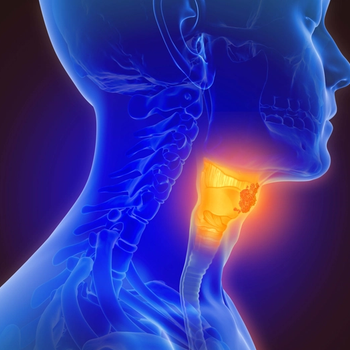
Cancer Diagnosis Linked With Increased Risk of Mental Disorders
Cancer patients have an increased risk of several common mental disorders, including depression and anxiety, beginning almost a year prior to the diagnosis.
Patients who are diagnosed with cancer have an increased risk of several common mental disorders, including depression, anxiety, and others, beginning almost a year prior to the cancer diagnosis, according to a large national cohort study conducted in Sweden.
“Recently, greatly increased risks of suicide and cardiovascular events shortly after cancer diagnosis were reported,” wrote study authors led by Donghao Lu, MD, of Karolinska Institutet in Stockholm. “However, these reports likely only represent the tip of the iceberg for the enormous psychological turmoil related to a newly received cancer diagnosis.”
The new study made use of Swedish population and health registries to compare 304,118 patients with cancer to a matched cohort of 3,041,174 cancer-free individuals. The study examined rates of five specific mental disorders: stress reaction/adjustment disorder; depression; anxiety; substance abuse; and somatoform/conversion disorder. The results were published in JAMA Oncology.
The overall relative incidence of those mental disorders began to increase among the cancer patients 10 months before the diagnosis of cancer, with a hazard ratio (HR) at that point of 1.1 (95% CI, 1.1–1.2). Unsurprisingly, this peaked during the week immediately following the cancer diagnosis, with an HR of 6.7 (95% CI, 6.1–7.4). It remained elevated at 1 year post-diagnosis (HR, 2.2 [95% CI, 2.1–2.2]) and out through 10 years (HR, 1.1 [95% CI, 1.1–1.2]).
There were some differences in these rates of mental disorders based on demographic characteristics. The risk of disorders in the immediate aftermath of the cancer diagnosis increased more dramatically in women than in men, with HRs of 7.6 (95% CI, 6.8–8.6) and 5.4 (95% CI, 4.6–6.3), respectively. Higher education levels were also associated with a larger spike in that period.
The results were generally similar among all major cancer types with the exception of non-melanoma skin cancer, which did not result in as large an increase in mental disorders. The rate of increase was higher when patients were diagnosed with cancers carrying a poor prognosis; this was true both before and after the diagnosis occurred (P < .001 for both). There were no major differences in rate elevations for each of the five mental disorders studied.
Patients diagnosed with cancer also had an increased use of psychiatric medications, beginning 1 month before the cancer diagnosis (12.2% vs 11.7%; P = .04) and peaking about 3 months following the diagnosis (18.1% vs 11.9%; P < .001). This remained elevated out to 2 years beyond diagnosis.
“Our findings support the existing guidelines of integrating psychological management into cancer care and call for extended vigilance for multiple mental disorders starting from the time of the cancer diagnostic workup,” the authors concluded.
Newsletter
Stay up to date on recent advances in the multidisciplinary approach to cancer.










































